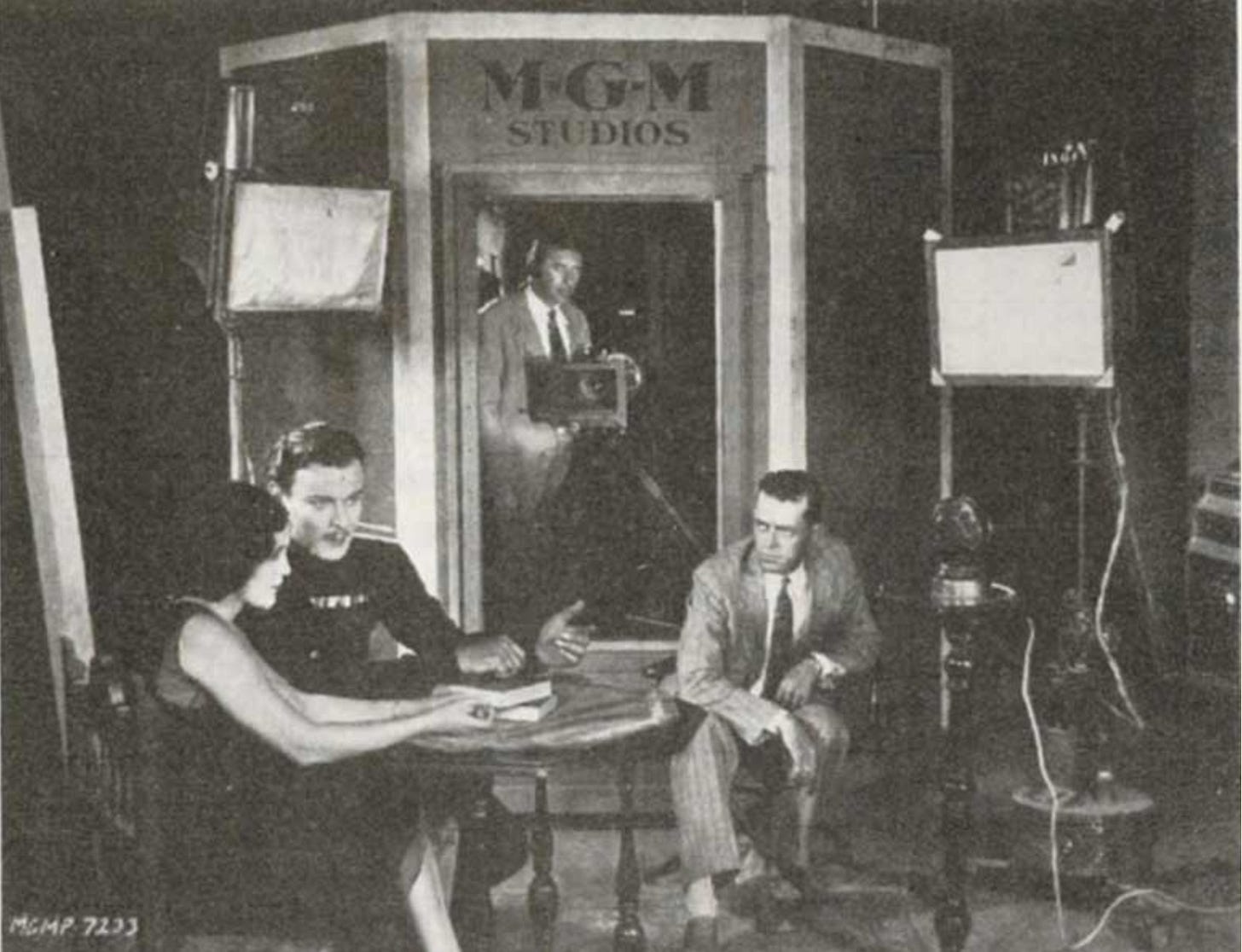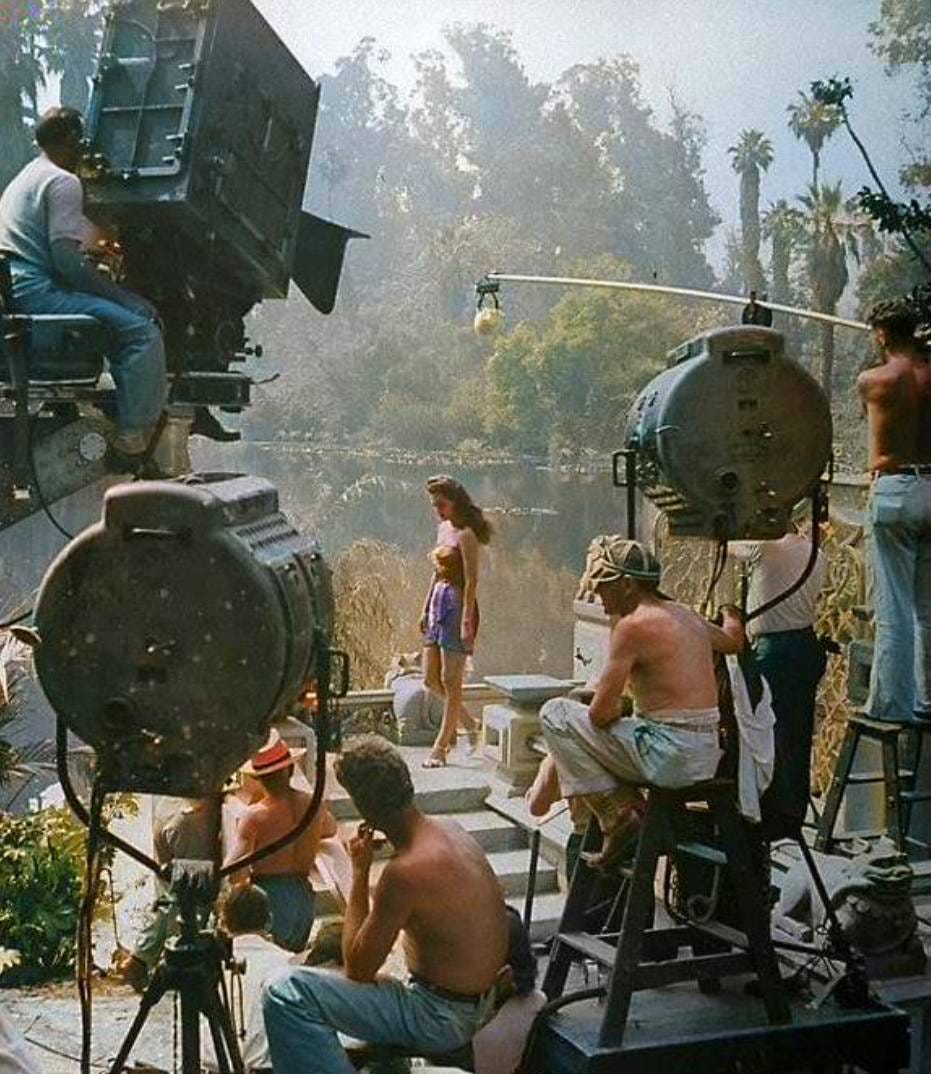Just when you thought it was safe to go back in the water...
Note: Today's post is the last I'll publish here on Blogger. It was a good run -- 18 years, more or less -- but for reasons too tedious to relate, this site has become entirely too much of a pain in the ass to use any more. From here on, you'll find Blood, Sweat, and Tedium at Substack, where something -- usually, but not always from the archives -- will drop every Sunday at 9:01 A.M. (PST), with a fresh post or a chapter from the book on the first Sunday of each month. The BS&T archives will remain here until the entire site crumbles into a pile of digital rubble, but no new posts will appear, so come on over to Substack where the water's fine and no big sharks will bother you, I promise. There will never be a paywall, nor do you have to "subscribe" -- although that's free -- but if you do, each new post will materialize unbidden in your e-mail inbox. Meanwhile, I want to thank you all for your interest, support, and comments over the years, which have meant more to me than you'll ever know.
**************************************************
Fifty years later, it’s once again the summer of “Jaws,” which scared audiences and delighted theater owners all over the country while earning vast profits for Universal Studios. Peter Benchley’s book — which spent the better part of a year on the NY Times bestseller list — had enough plot twists for three movies, so the screenwriters strip-mined his story for parts, then boiled the story down to its dramatic essence while emphasizing elements borrowed from Ibsens’ “Enemy of the People” and Melville’s “Moby Dick.”
Hey, if you’re going to steal, steal from the best.
After borrowing the book from one of my co-workers at a pizza parlor, I was hooked — and, naturally, convinced that I was destined to direct the movie. I saw Telly Savalas as “Quint,” the shark fisherman, Michael York as “Hooper,” the young shark expert, and after that … well, I dunno. Let the casting director earn her money fleshing out the various roles.
Fortunately for Hollywood and the global viewing public, Universal gave the nod to Steven Spielberg rather than handing the keys to a young pizza cook who had yet to finish his 30-minute college thesis film, much less earn a degree. Cut to a year or so later, when this issue of "Time Magazine" came out, and rather than brushing sand from Martha’s Vineyard off a director’s chair with my name embossed on the back, I drove 35 miles to the nearest theater that was running “Jaws,” where I sat in the very front row staring straight up at the screen, utterly enthralled. As my heart gradually stopped pounding during the credit roll at the end of the movie, I had but one conscious thought: “This movie is going to make a LOT of money!”
Well, I was right about one thing, anyway.
Steven Spielberg gets the last laughSix years earlier, "Easy Rider" shot a flare over Hollywood, signaling to the aging, sclerotic studios that the times, they were a changin'. A few years later came "The Godfather," further demonstrating that a young audience was out there, hungry to see stories told in new ways on screen -- and those kids had money to spend. Then came "Jaws," which pretty much sealed the deal as a new generation of writers and directors took over Hollywood.
But as was the case with so many modern Hollywood classics, this was a deeply troubled production right from the start, beset by an ever-evolving script, a budget that blew through the studio’s hopeful estimates like a horse fleeing a burning barn, a mechanical shark that seldom worked, and a terrified 27-year-old in the director's chair. As can happen, the chaos helped the film, forcing young Mr. Spielberg to focus on the characters in the drama rather than the constantly malfunctioning shark. Sometimes -- often, actually -- less really is more.
But out of all that chaos emerged a true classic, and the story will be told in a new documentary called Jaws at Fifty — scheduled to broadcast July 10 on National Geographic, then be available to stream on Disney+ and Hulu on July 11 — which promises to tell the “making-of” story from the POV of insiders who were there. I’m looking forward to hearing those stories.
Given the inherent difficulties of film production, every movie generates a wealth of stories, big and small. I worked with two people among the “Jaws” crew, a strapping young arc operator at the time who enjoyed his after-hours romps with the women of Martha’s Vineyard, and another never-to-be-named individual tasked with driving a truck full of raw film stock from LA back to the set in Massachusetts. When the truck broke down and got stuck in the hot desert for a few days, the DP could no longer trust the film — which can be damaged by exposure to excessive heat — so the studio sent another load of film to the set. Meanwhile, that certain individual proceeded to sell the heat-treated film (which was still good, as it turned out) to various other production companies over the next year or so.
“I bought my first Harley with that money,” he grinned, and welcome to Hollywood, folks.
With all that in mind, I watched a DVD of “Jaws” the other night, and despite a few seams here and there, it holds up remarkably well — and might even hold lessons for us today that have nothing to do with beaches or going back into the water. Roy Schieder and Richard Dreyfuss are terrific, fully inhabiting their respective roles as Brody and Hooper, and Murray Hamilton’s portrayal of Mayor Larry Vaughn is letter-perfect, but it’s Robert Shaw’s “Quint” who owns this movie: you really can’t take your eyes off him whenever he’s on screen. Still, it seems that Mayor Vaughn emerges as the real winner in the end. Yes, he’s been shamed and humiliated after browbeating Brody to open the beaches, resulting in the bloody deaths of one unlucky dog and two people minutes later, but with the monster shark finally dead, the little town of Amity is once again safe for tourists — and since Quint is literally in the belly of the dead beast, Mayor Vaughn doesn’t even have to pay the promised $10,000 fee for killing the shark.
Maybe that’s why "Larry Vaughn" was still Amity’s mayor four years later in Jaws 2, thus proving something we’ve all learned the hard way over the last decade: that truly bad, money-grubbing, me-first leaders are even more dangerous and harder to get rid of than a monster Great White Shark.










